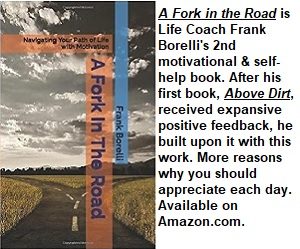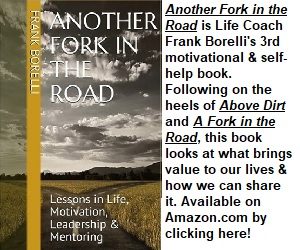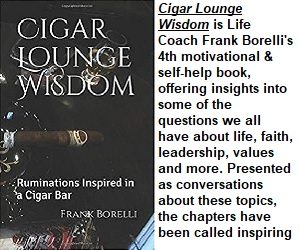In the contemporary world there seem to be a host of beliefs, accepted as unavoidable fact, based on assumptions about the inevitable results of past events. The examples I would give are 1) Every combat veteran will have or does have PTSD and 2) If you have a family history of clinical depression then it’s inevitable that you have or will have it too. Such beliefs… assumptions really… are not only far from accurate but, if believed, can be unnecessarily and avoidably debilitating. Let me explain.
 For most people it is easier to make an assumption than to do requisite research and come to a reasonable conclusion. Additionally, if you do the research and come to a conclusion that is different from the socially accepted popular conclusion then you risk being judged, labeled, etc. It is easier and less threatening, therefore, to simply accept that which everyone else seems to just accept as a given. But in doing so we fail to make our own decisions; we fail to make our own choices; and we may well be assuming that something is wrong with someone or with ourselves.
For most people it is easier to make an assumption than to do requisite research and come to a reasonable conclusion. Additionally, if you do the research and come to a conclusion that is different from the socially accepted popular conclusion then you risk being judged, labeled, etc. It is easier and less threatening, therefore, to simply accept that which everyone else seems to just accept as a given. But in doing so we fail to make our own decisions; we fail to make our own choices; and we may well be assuming that something is wrong with someone or with ourselves.
 My adopted father’s family had a number of relatives who “suffered from clinical depression created by an imbalance in brain chemistry.” My adopted father was always worried that he might. His sister did. His nephew did. As a result of those concerns on his part, I heard other relatives voice their concern that they might as well. It became almost a contagious thought process. “Wait… you mean this runs in the family? It’s in our blood? Oh my goodness… you mean I might have clinical depression? Do I? Can I avoid it? Not if it’s in my blood… I guess I better find a way to deal with it.” And just like that several people made the assumption that just because one of their relatives had been diagnosed with clinical depression that everyone in the family had to have the same challenge. What a crock.
My adopted father’s family had a number of relatives who “suffered from clinical depression created by an imbalance in brain chemistry.” My adopted father was always worried that he might. His sister did. His nephew did. As a result of those concerns on his part, I heard other relatives voice their concern that they might as well. It became almost a contagious thought process. “Wait… you mean this runs in the family? It’s in our blood? Oh my goodness… you mean I might have clinical depression? Do I? Can I avoid it? Not if it’s in my blood… I guess I better find a way to deal with it.” And just like that several people made the assumption that just because one of their relatives had been diagnosed with clinical depression that everyone in the family had to have the same challenge. What a crock.
 My oldest brothers are all combat Marine veterans. They are all old enough to have served in Vietnam and they did. Two retired from the Corps. One got out after his period of enlistment and became a police officer. They are a shining example of how not all combat veterans are challenged with post-traumatic stress. None of them suffer from it in any way. They don’t have health issues related to their time served or their combat experience. I know other families that are the same way: multiple veterans with years of combined combat service and not a problem among them. They easily dispel the myth that everyone who sees combat has to suffer from trauma related stress, yet many people, upon first learning that they are combat vets, will ask them, “How do you deal with your PTSD?” Not all trauma causes long term stress. A great many traumatic events and experiences can cause growth rather than disability. Assuming that everyone who has experienced any kind of trauma suffers from related stress is… a crock.
My oldest brothers are all combat Marine veterans. They are all old enough to have served in Vietnam and they did. Two retired from the Corps. One got out after his period of enlistment and became a police officer. They are a shining example of how not all combat veterans are challenged with post-traumatic stress. None of them suffer from it in any way. They don’t have health issues related to their time served or their combat experience. I know other families that are the same way: multiple veterans with years of combined combat service and not a problem among them. They easily dispel the myth that everyone who sees combat has to suffer from trauma related stress, yet many people, upon first learning that they are combat vets, will ask them, “How do you deal with your PTSD?” Not all trauma causes long term stress. A great many traumatic events and experiences can cause growth rather than disability. Assuming that everyone who has experienced any kind of trauma suffers from related stress is… a crock.
 Such assumptions, while popular, are counterproductive and even harmful. I know a handful of people who all have events in their personal life backgrounds that others might find horrific: sexual assault, child abuse, abandonment and more. Some of them do face challenges in dealing with the memories and how the experiences impacted their personality development. Others look back and think, “Yep; I experienced that. This is how it impacted me (or didn’t at all) and this is how I continue to move forward.” I know a man who was severely abused as a child and he’s learned to view it as a blessing. It taught him to function through pain and to sleep light – both valuable skills for his chosen time in the military service and then as a career law enforcement professional. Because of his outlook he took what most people would view as a traumatic event (or series of them actually) and turned it to his advantage. How? Simply through the power of his outlook toward the events in his past. He realized that he would never be able to change them. He could either fret over what he couldn’t change; worry about how it might have negatively impacted him; or simply see the events and experiences for what they were, recognize what he learned and leverage that to his benefit.
Such assumptions, while popular, are counterproductive and even harmful. I know a handful of people who all have events in their personal life backgrounds that others might find horrific: sexual assault, child abuse, abandonment and more. Some of them do face challenges in dealing with the memories and how the experiences impacted their personality development. Others look back and think, “Yep; I experienced that. This is how it impacted me (or didn’t at all) and this is how I continue to move forward.” I know a man who was severely abused as a child and he’s learned to view it as a blessing. It taught him to function through pain and to sleep light – both valuable skills for his chosen time in the military service and then as a career law enforcement professional. Because of his outlook he took what most people would view as a traumatic event (or series of them actually) and turned it to his advantage. How? Simply through the power of his outlook toward the events in his past. He realized that he would never be able to change them. He could either fret over what he couldn’t change; worry about how it might have negatively impacted him; or simply see the events and experiences for what they were, recognize what he learned and leverage that to his benefit.
As he said: he refused to let his past shackle him. The shackles of the past are largely in our own minds and we can make the conscious choice to release ourselves from them. I’ve known people who were overweight in their youth and have labeled themselves “fatties” for their entire lives even though they haven’t been since their college years. Several of them are some of the most fit people I know. I’ve known people who had drug or alcohol addiction issues in their past and have long since overcome them. Are they still addicts? Most folks believe “once an addict, always an addict,” but their current day to day behavior is not that of an addict. They overcame a challenge, remember the lessons from it and have moved forward in a positive fashion in their life. I know a man who, in his childhood, was raised by his mother exclusively because his father had abandoned them. He simply up and left one day and never came back. My friend remembers his father and how his mother reacted and adjusted to the abandonment over time. My friend remembers how it sucked and it still does. Being abandoned by someone who is supposed to love you and in whom you can place your trust truly sucks. But it can never be changed so my friend doesn’t dwell on it. He sees it for what it is: an event in his past that altered how his life proceeded but that has no current impact in his day.
The point is that none of us can change our past. What we CAN do is keep it in perspective. Remember it. Learn from it what we can. And then leave it alone. It should have no impact on our current day or on our future plans. It helped contribute to who we are and what makes us each unique… but it should in no way shackle us or keep us from being what we want to be.
